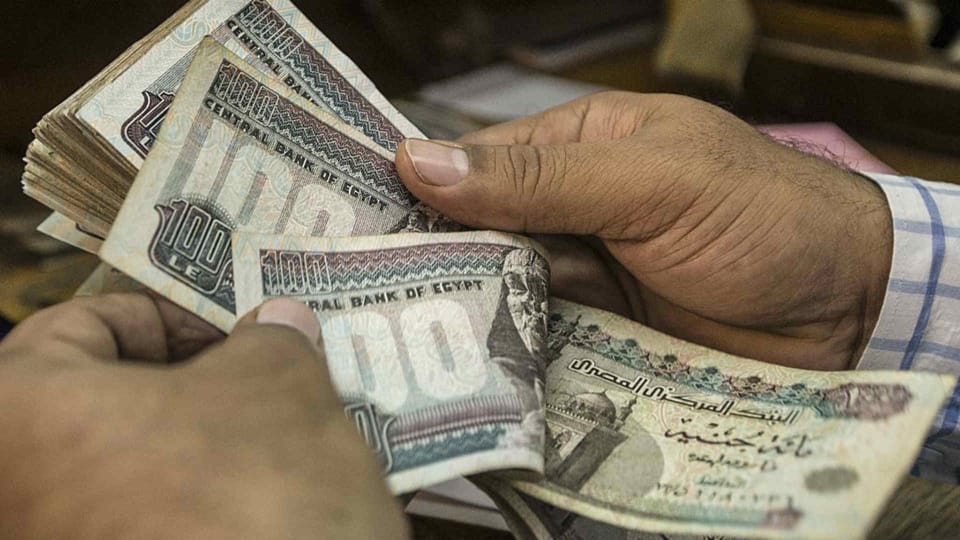Egypt Episode 3 - Diving into Egypt's Cash Culture and the Emerging Digital Payment Revolution

Welcome back to the third episode of Sherman's Weekly Digest! After exciting tours of Egypt's pyramids and temples in the first two episodes, I’m shifting gears to explore the vibrant day-to-day lives of locals in Egypt, with a particular focus on their relationship with money and my area of expertise - digital payment.
🚖 An Uber Journey in Egypt
Let's start with a seemingly ordinary Uber ride in Egypt, a journey that turned out to be anything but ordinary. In Hong Kong, we are accustomed to paying for our Uber rides digitally, but I discovered that in Egypt, particularly in Cairo, cash payment is more the norm. After engaging in insightful conversations with several Uber drivers, they revealed that more drivers would accept my order if I chose to pay in cash.
Intriguing, isn't it? Most Egyptians, it seems, prefer cash and have minimal savings. One driver confessed that he spends most of his earnings from Uber within the month, as he's not willing to wait for a week for Uber to settle credit card payments.
💱 The Currency Exchange Conundrum
This apparent preference for cash leads us to a more complex issue - the currency exchange rates. Egyptians have two distinct rates for the Egyptian pound against the USD: the official rate and the black market rate. The difference between these two rates is staggering, with a 100% variance. The official rate sits at 1USD = 30 EGP, while the black market rate doubles that at 1USD = 72EGP. (So definitely go to the black market if you want to do the currency exchange!) This discrepancy has led to a surge in prices, mostly for imported commodities, causing economic pressures that have soared since early last year.
Of course, individuals operating in the black market aren't lacking in shrewdness - they willingly accept USD at a higher rate because they understand the benefits it brings. The USD is globally recognized and highly sought after, which provides them with a range of lucrative opportunities.
They could indulge in currency arbitrage, buying currencies at lower official rates and selling them at higher black market rates, thereby turning a tidy profit. They could also leverage their USD to import goods at a lower cost and then sell them at a higher price in their local market. Investment in stable or profitable foreign markets is another viable option, potentially yielding greater returns than those in their local economy. Lastly, in economies facing high inflation or instability, holding USD acts as a protective shield against local currency depreciation. As the value of local currency falls, the relative value of their USD holdings increases.
The crash of the dollar in Egypt was caused by several factors. One of the main catalysts was the high-interest rates that led to increased borrowing, which in turn caused a strain on the economy. The situation was further exacerbated by geopolitical factors, such as the recent war around Gaza. With these stressors, the value of the Egyptian pound against the dollar drastically declined, leading to the significant disparity between the official and black market rates.
💡 A Silver Lining: The Rise of Digital Currency
But wait, there's a silver lining in this cash-dominated economy - the potential rise of digital currency. An intriguing shift is that Egypt is gradually transitioning away from traditional payment methods towards digital payments. This shift is largely driven by Egypt's young population, with Generation Alpha (those born after 2010) being the largest demographic group, accounting for 30% of the total population in 2022.
Most of Egypt still heavily relies on cash payments due to various reasons such as 57% of the population living in rural areas and 67% of the population being unbanked. However, this has spurred growth in digital payments, with lower-income classes seeking new solutions like digital-first banking apps and digital wallets. These digital platforms offer an alternative to traditional bank accounts, providing financial solutions to a broader demographic.
🚀 Egypt's Vision 2030: A Leap into the Digital Future
Egypt's Vision 2030 outlines a comprehensive strategy to boost digitalization and innovation in the country. As part of this ambitious plan, the government has announced the establishment of 17 smart cities that integrate new technologies, including digital payments. This represents a significant shift from the country's past reliance on traditional payment methods like cash/cheques, credit cards, and money transfers.
This could be a golden opportunity for Egypt to leapfrog into an advanced payment world, bypassing the credit card era altogether. Lessons can be learned from countries like China or Sweden, where digital currency has taken off in areas less developed in credit card payment.
🎗 Wrapping Up
As my trip in Egypt comes to an end, I'm amazed by how this old country is slowly embracing new ways of money handling. Even though cash is still king here, digital payments are starting to grow. It's been a fascinating part of my Egyptian journey. So, don't miss out on more stories from Egypt in the next part of Sherman's Weekly Digest!
Ciao,
Sherman
Some of the extra readings if you are interested to know more!
“A History of Egypt: From the Earliest Time to the Present” by Jason Thompson
US dollar value in Egypt's black market rises amid Gaza war (newarab.com)
US dollar reaches EGP 72 in Egypt's parallel market - Economy - Business - Ahram Online

Member discussion